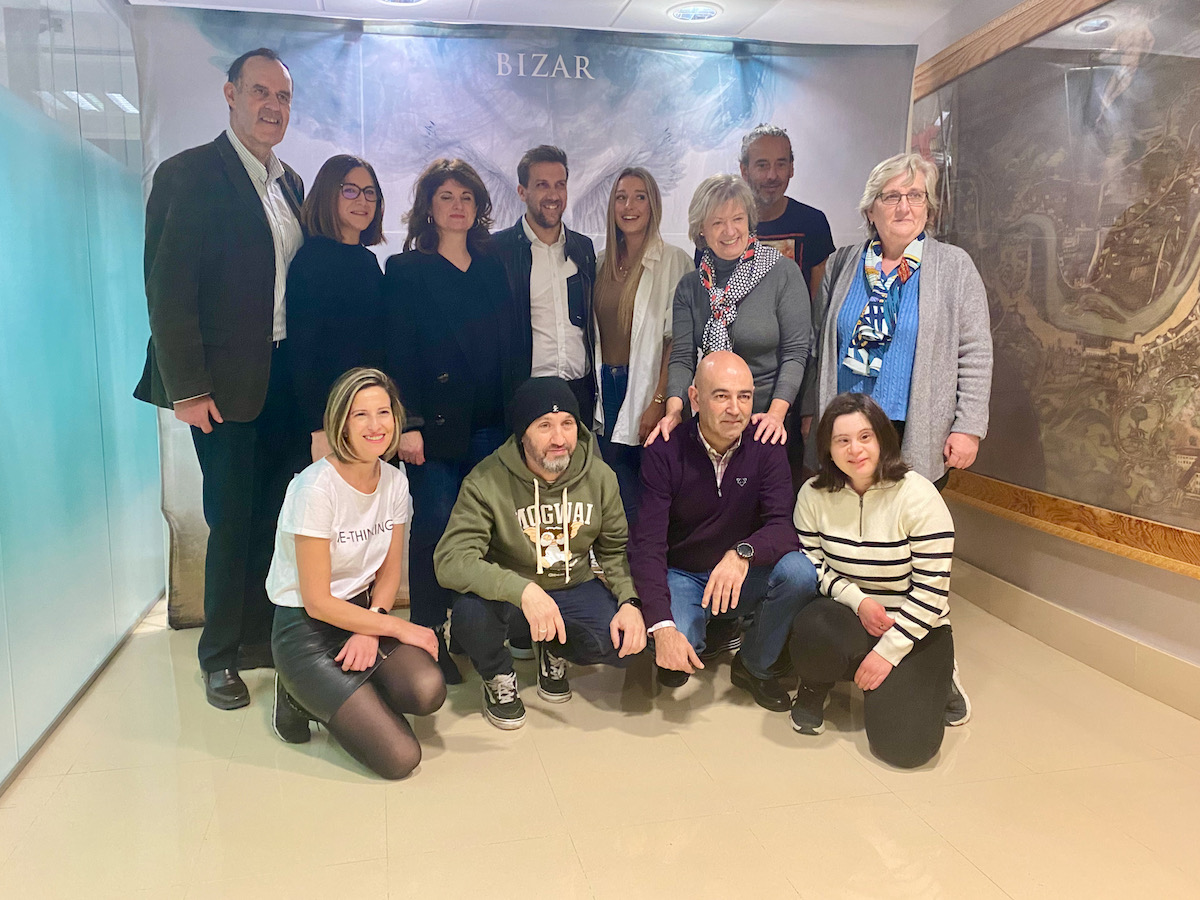To raise awareness, draw attention to and promote the integration of people with Down’s Syndrome and Autism Spectrum Disorder (ASD), and to support their employability and inclusion in society, Mikel Bizar has presented the second part of his project “Esa maravillosa niebla” and the video clip of the song “Se pierda el miedo”.
The video, given its first public showing at the Bilbao Chamber of Commerce, has been produced with the collaboration of the Down Syndrome Foundation of the Basque Country, the Port Authority of Bilbao and the Town Councils of Leioa and Sopela. Co-starring Andrea Sesma, Ugaitz de Lera (ASD) and Zuriñe Torrontegi (Down’s Syndrome), the video is directed by Aitor Elorriaga and produced by Ander Shinova and Luz Tato (GatoBala films), with the collaboration of Gorka Aguirre, winner of a Goya in 2013 for his work in the film “Handia”, and the journalist Dani Álvarez, amongst others.
In the first single of the project, Mikel Bizar tells the story of a person who, judged by her condition, is prevented from developing her abilities. After overcoming a series of obstacles, where the only thing capable of overcoming fear is fear itself, she and the people who support her manage to take her to a place where trust and confidence transcend any disabilities she has, enabling her to show that she has a lot to contribute.
The complete project, which will be published in Basque and Spanish, will be released in May this year. The book format will be combined with music and will feature children’s stories put to music and illustrated by a person with Asperger’s. One of these stories will link Bilbao and Senegal with the Golden Star project on values in sport, and will be a work told, sung and based on true stories.

A trilogy for diversity and equality
“Esa maravillosa niebla” is a trilogy that aims to help bring different developmental disorders into the mainstream. In the words of the singer, composer and writer from Bilbao, “this is a literary and musical project that traces the social evolution of these disorders over the last hundred years and champions education in diversity and equality. The whole trilogy is, in short, an ode to inclusion and equality”.
The first part, published in November 2018 and now in its fifth edition, gave prominence to autism. The second part is focused on both autism and Down’s syndrome and the third and final part will look to address the taboo of mental health head on, “with as much feeling and heart as possible”.

 Port access
Port access